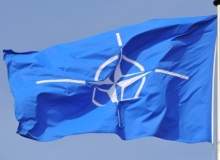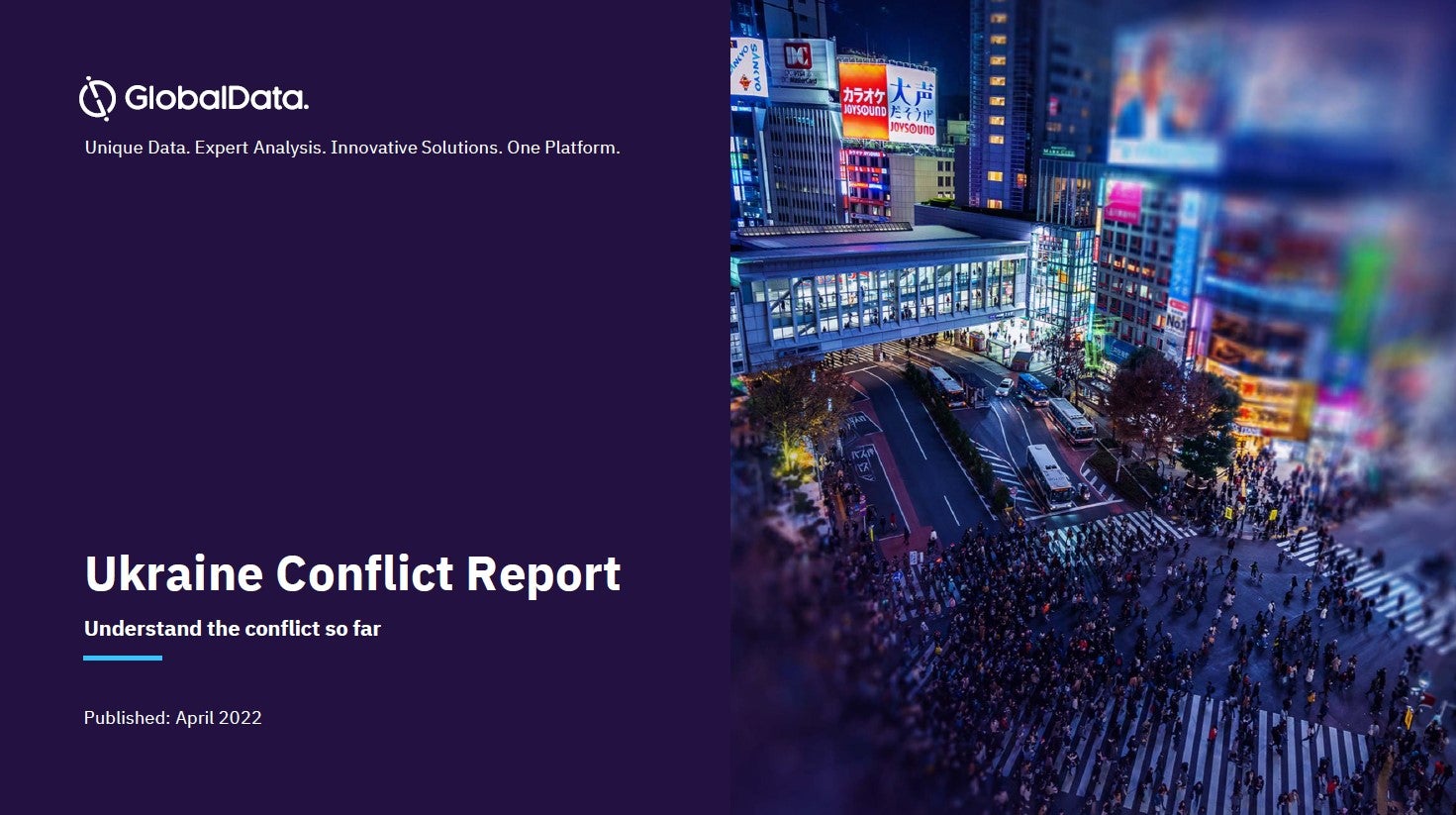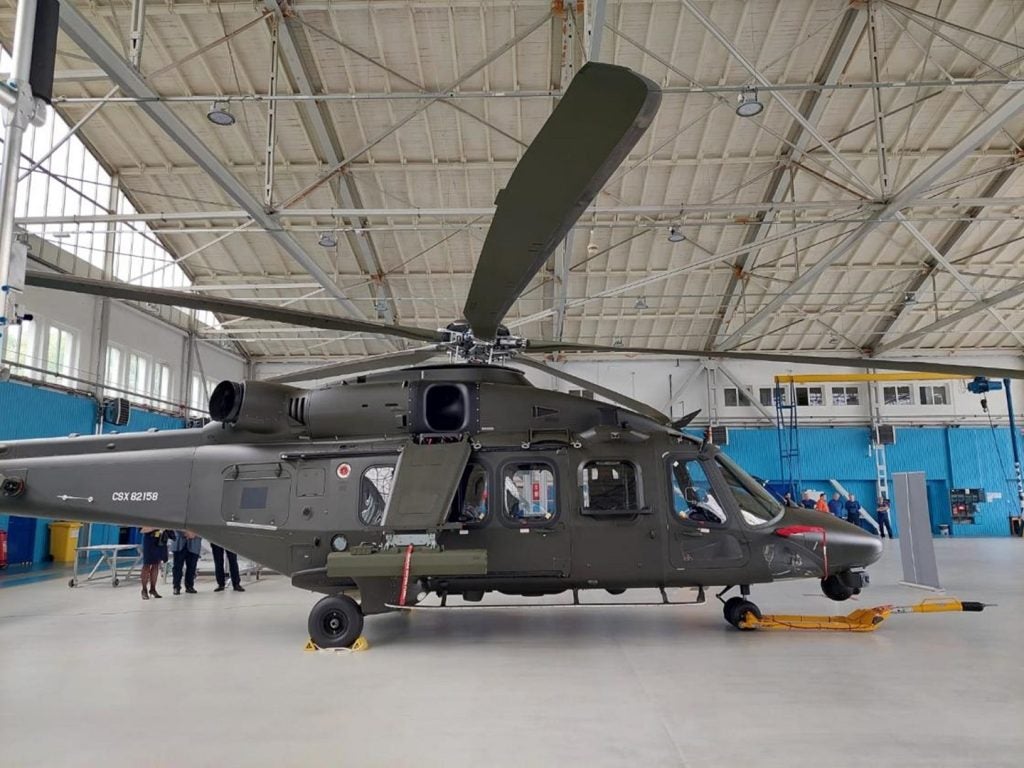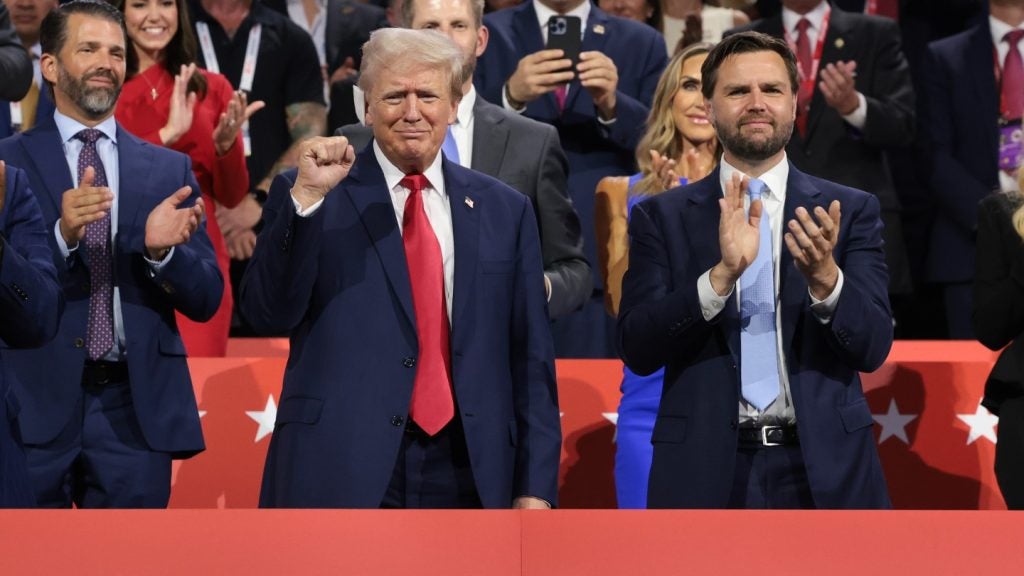

"NATO is useless." Those were the words of one veteran journalist writing about NATO back in 2008. NATO had failed in Afghanistan, as it had done in Serbia, and it proved to be a ‘rotten’ fighting force in Kabul. Its attempts at diplomacy were no better, said the Guardian’s Simon Jenkins. "Now it has become a diplomats’ Olympics, irrelevant but with bursts of extravagant self-importance."
How well do you really know your competitors?
Access the most comprehensive Company Profiles on the market, powered by GlobalData. Save hours of research. Gain competitive edge.

Thank you!
Your download email will arrive shortly
Not ready to buy yet? Download a free sample
We are confident about the unique quality of our Company Profiles. However, we want you to make the most beneficial decision for your business, so we offer a free sample that you can download by submitting the below form
By GlobalDataUp until 2014, Jenkins was not a lone voice. NATO was created 65 years ago to counter Soviet aggression and prevent another occupation of Western Europe. Its initial membership of just 12 countries has ballooned to 28 and at least seven more countries, including Georgia, Azerbaijan and Ukraine, are involved with NATO under what is termed Individual Partnership Action Plans.
This has led to criticisms that NATO is too large, making it unwieldy and dysfunctional. And what use does it have when the Soviet Union collapsed and Russia no longer poses a threat?
Finding a post-Cold War purpose
Since the end of the Cold War, NATO members have taken advantage of the so-called ‘peace dividend’ and slashed defence budgets, while NATO itself has had to find a renewed purpose.
"Despite the changed international environment institutional survival became NATO’s paramount objective," wrote Doug Bandow, a senior fellow at the Cato Institute, last year. "Proposals were advanced to shift from deterring the Soviets to combating illegal drug use, underwriting student exchanges, and promoting environmental protection."
Could Turkey’s drive for self-sustainability affect a decades-old relationship with NATO?
The alliance eventually decided it would operate "out of area" – meaning outside Europe. The Balkan wars in the 1990s, which followed the breakup of Yugoslavia, were the first real test of this concept. Since then, NATO has led security operations in Afghanistan with the International Security Assistance Force (ISAF) and the military intervention in Libya in 2011, which led to the ousting of Muammar Gaddafi.
But these "unnecessary wars" have only served to keep NATO busy and accelerate its decline, said Bandow. "They demonstrate that NATO is irrelevant to its members’ security. Many Europeans no longer even see any obvious need for national militaries."
That view has been challenged in recent weeks in light of events in Ukraine and the Black Sea peninsula of Crimea.
In February 2014, Crimea was occupied by local self-defence forces after unrest in the Ukrainian capital Kiev. These forces were widely reported to be Russian Federation soldiers without insignia. On March 17, the Crimean parliament declared independence from Ukraine after a referendum showed 96% of Crimeans were in favour of joining the Russian Federation.
Despite being declared illegal by the United Nations and condemned across the world, there’s no sign that Russia will give up Crimea. And where will Russia stop? Its reason for moving into Crimea was to protect the ethnic Russian people residing there. That has other countries worried too, like the Baltic States which still have sizeable Russian populations.
Changing perspectives: NATO steps up to the plate
It is in this context of a revanchist Russia that NATO, all of a sudden, doesn’t look so useless anymore. Ten years ago, former Soviet countries like Latvia, Lithuania and Estonia joined the military alliance, which means they can use NATO’s ‘fundamental principle’ of collective security, as set out by Article 5 of the North Atlantic Treaty. In essence, the article states that an attack on one NATO country is an attack on all alliance members.
Can the Baltic States rely on NATO if it did come under attack? Yes, says the outgoing NATO secretary general Anders Fogh Rasmussen.
"No one should doubt our determination to defend and protect our allies," he recently told Foreign Affairs magazine. "And, of course, after what we have seen, we have an obligation to look into how we can strengthen our deterrence and how we can strengthen our collective defence."
He continued: "I am 100 percent sure that, in that case, Article 5 would be activated, and I have no doubt that the alliance as a whole would take action to ensure effective protection and defence of an ally that is attacked."
That is the very worse case scenario, especially as it could trigger another world war. Still, in the last few weeks NATO has been taking steps to ramp up its military presence across Eastern Europe in a show of support for allies. According to some observers, the Crimean crisis has given the alliance a renewed sense of purpose and there is an "unmistakeable spring in NATO’s step".
Using predominantly US equipment, NATO is beefing up its protection of Baltic airspace – known as the Air Policing Mission – with six more US Air Force F-15 fighters. The US has also sent 12 F-16 fighters to Poland, which shares a large border with Russia, to bolster the Polish Air Force’s air defences. US warships, under the NATO banner, have been carrying out exercises in the Black Sea alongside the Bulgarian and Romanian navies.
It is the biggest mobilisation of NATO forces within Europe since the end of the Cold War.
NATO breaks ties with Russia
And what about the future? On 1 April NATO suspended its practical cooperation with Russia over the crisis in Crimea and Ukraine. The suspension signals one of the worst periods for Russia-NATO relations since the two joined the Partnership for Peace programme in 1994. It also means Russia cannot participate in joint exercises with NATO. There are worries this, and NATO’s plans to export equipment to Ukraine, could further destabilise relations.
In this context, it has also been suggested that NATO expansion over the last two decades has played a role in Russia’s aggressive foreign policy. That is something Rasmussen denies.
"NATO has not at any point been a threat towards Russia," he said. "We have been very transparent. We have even included Russia in our partnerships. We declared already in 1997 that we do not consider each other adversaries. We declared that we will not use force against each other."
"NATO enlargement is not a threat against Russia. On the contrary: through enlargement of NATO – and by the way, also the European Union – we have established a zone of security, stability, and prosperity in eastern and central Europe."
While it may not be a return to the Cold War, an aggressive, revanchist Russian foreign policy and NATO mobilising its forces in Europe certainly harks back to a by-gone era. It is also a wake up call for many NATO members who, to put it simply, do not pull their weight in the alliance. That was a view expressed by former US defence secretary Robert Gates back in 2011, in his now infamous NATO speech. He warned that NATO was becoming "irrelevant" as allies failed to step up their contributions.
Now, three years on, NATO has found its relevance again.
Follow Grant Turnbull on Google+



.gif)





